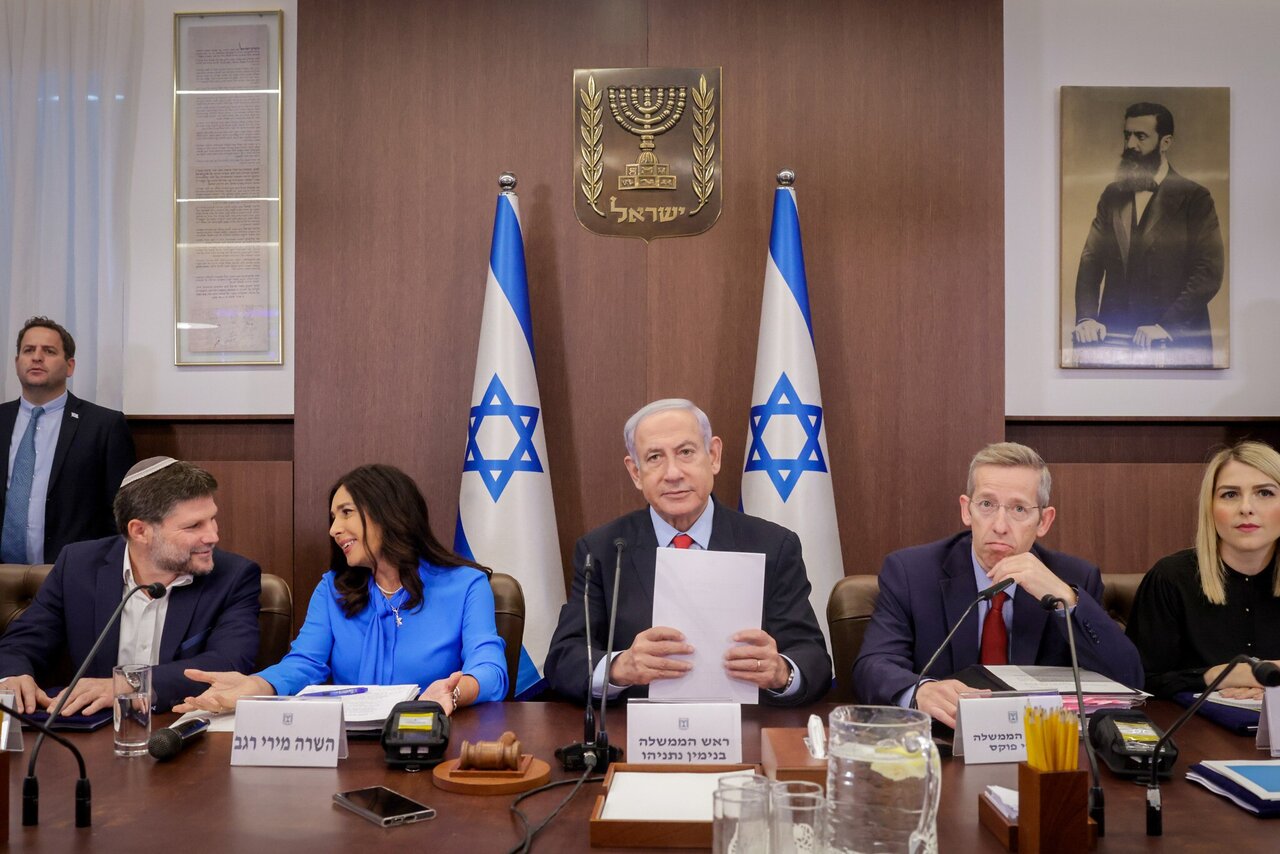Palestinians awaiting explicit Israeli approval of ceasefire

TEHRAN- A leading source in the Palestinian resistance movement has told regional media that Tel Aviv has reluctantly complied with what Hamas insisted on in its conditions during negotiations to end the American-backed Israeli war on the Gaza Strip.
The unnamed official has revealed to the Beirut-based Al-Mayadeen news channel that the developments on negotiations aimed at ending the war, underlining that the Israeli occupation regime "presented comments on the paper submitted to Hamas on May 6."
The source said on Tuesday that "Israel has reluctantly complied with what Hamas insisted on in terms of a permanent ceasefire, complete military withdrawal (from Gaza), and unconditional return of the displaced (Palestinians)."
The source also pointed out that the Israeli regime is rejecting any "guarantors for the agreement other than Egypt, Qatar, and the United States," adding that Tel Aviv is still insisting that about 200 Palestinian prisoners with life sentences would not be freed "except on its conditions".
There has been speculation that the U.S.-presented ceasefire would be put before the UN Security Council, which would prevent any side from violating it.
Earlier on Tuesday a senior official with Hamas confirmed that the group will not send a delegation to Cairo on Wednesday, possibly suggesting that Hamas did not accept what was offered to it by the mediators.
The senior official confirmed Hamas's refusal to start from "square one" again, after agreeing to a previous ceasefire text, explaining that "our main condition now is to obtain an official and explicit Israeli approval of the previous paper, otherwise we cannot enter rounds and discussions from scratch."
The Hamas official also expressed the movement's astonishment at the "continuous request from the U.S. administration, through mediators, for approval first while the Israeli side is not even in agreement," and therefore "we will not discuss any paper unless there is an Israeli approval first."
The head of Hamas’s international relations office, Moussa Abu Marzouk, confirmed that by June 2, the movement had not received any paper on what U.S. President Joe Biden proposed in his speech on Friday.
Abu Marzouk said on Sunday that the White House has not yet received a positive response from the Israeli occupation regime to Biden's proposal, and "yet it demands our approval".
There appears to be a consensus among the Hamas officials that the Palestinian resistance group had agreed to a previously similar ceasefire document, and its basic condition now is to obtain official, declared, and explicit Israeli approval of it.
Strong criticism has been leveled at the U.S. for saying the ball is in Hamas’s court when the Israeli side which supposedly presented the latest ceasefire proposal laid out by Joe Biden has not accepted it yet.
Experts believe the latest proposal was presented by U.S. President Joe Biden after the Israelis found themselves bogged down in Gaza. In essence, it is being viewed as a U.S. attempt to save the Israeli occupation regime before its "absolute defeat" in the totally blockaded enclave and isolation on the world stage.
The White House is also believed to have offered Israeli Prime Minister Benjamin Netanyahu a path out of the fierce opposition in his cabinet to ending the war.
The Israeli premier faces threats from his cabinet ministers to bring down the government as well as a plummeting approval rating among Israelis.
Following Biden’s ceasefire proposal speech, 120,000 Israelis flooded the streets of Tel Aviv alone, the largest anti-government demonstrations since October 7, demanding a captive exchange swap with Palestinian prisoners.
The text of Biden’s ceasefire proposal is based on a previous offer in which Hamas and the Israelis outlined their terms but only Hamas ended up accepting.
However, there are some differences on what Biden said on TV during his speech at the White House and what is written in the actual text of the ceasefire proposal delivered to Qatari and Egyptian mediators.
This comes as the Guardian newspaper cited experts on Monday as saying there may be more Hamas fighters in the north of Gaza, supposedly cleared by Israeli forces months ago, than in Rafah, the southern city in the territory described by Israeli officials as the organization’s "last stronghold".
The battles in Jabaliya (northern Gaza) between lightly armed Hamas fighters and the powerful Israeli military force underlined the ability of Hamas to return to parts of Gaza … threatening a "forever war" for months or even years to come, as the Israeli military tries to stamp out a tenacious insurgency, the Guardian cited experts as saying.
However other experts argue that Hamas and other Palestinian resistance factions have enough arms in stock to fight the Israeli occupation forces for several years and that Hamas did not return to Jabalia but never left the northern Gazan city in the first place.

Leave a Comment